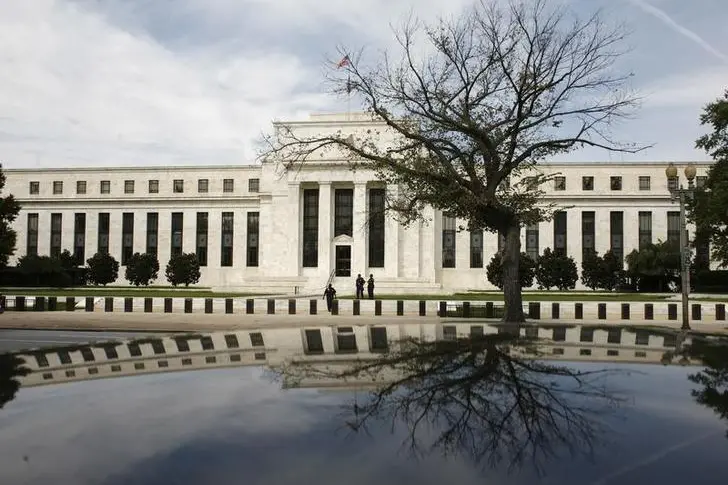PHOTO
Traders of futures tied to the Federal Reserve's policy rate have priced in a 50-basis-point hike in interest rates at the U.S. central bank's March 21-22 policy meeting after Fed Chair Jerome Powell said on Tuesday that continued strong inflation data could require tougher measures.
The price of fed funds futures contracts fell, pointing to a 66% probability that the central bank will lift its benchmark overnight interest rate to the 5.00%-5.25% range on March 22, from the current 4.50%-4.75% range, according to the CME Group's FedWatch tool. That was up from the 30% chance seen before Powell's testimony before the Senate Banking Committee.
The futures contracts pricing also points to firming expectations for the policy rate to rise to a 5.25%-5.50% range by June. The peak funds rate is seen hitting 5.6% in September.
"A 50-bp hike in the next meeting is possible, but it is going to be dependent on the payrolls not slowing down and CPI (Consumer Price Index) numbers showing that the disinflation progress we've made is stalling," said Scott Ladner, chief investment officer at Horizon Investments.
With the next policy meeting two weeks away, Friday's U.S. employment report for February along with an inflation report next week will be crucial in determining the pace of upcoming rate increases.
Powell's testimony on Tuesday marked a stark acknowledgement that a "disinflationary process" he spoke of repeatedly in a Feb. 1 news conference may not be so smooth.
Andrew Hunter, deputy chief U.S. economist at Capital Economics, pointed out in a research note that not only interest rates are poised to rise higher than previously expected, but there is now a lot less flexibility to cut rates later this year as many initially anticipated.
But Hunter said he's not ready to throw in the towel yet.
"A strong January doesn't make a strong year – particularly given the potential impact of the unseasonably warm winter," Hunter said.
"With most leading indicators flashing red, we still think the economy is likely to fall into recession as the lagged impact of the Fed's cumulative tightening feeds through." (Reporting by Ann Saphir and Gertrude Chavez-Dreyfuss in New York; Additional reporting by Shristi Achar in Bengalaru; Editing by Kirsten Donovan, Raissa Kasolowsky and Paul Simao)




















